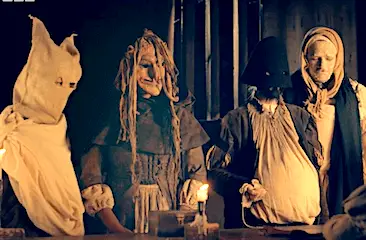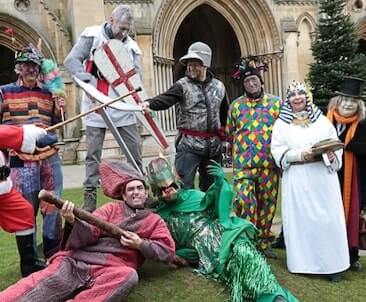Mum's the word
What's the meaning of the phrase 'Mum's the word'?
'Mum's the word' means 'keep quiet - say nothing'.
What's the origin of the phrase 'Mum's the word'?
'Mum's the word' has become a popular name for baby product shops and nursery services, but the 'mum' in this phrase isn't mother.
Nor has 'mum' anything to do with Egyptian mummies, despite their prolonged taciturn disposition. That 'mummy' derives from 'mum' being an alternative name for the bitumen used for embalming.
The 'mum' of 'mum's the word' is 'mmm' - the humming sound made with a closed mouth, indicating an unwillingness or inability to speak. The word is of long standing in the language and first appeared in print in William Langland's Middle English narrative poem The vision of William concerning Piers Plowman, 1370-90:
Thou mightest beter meten the myst on Malverne hulles
Then geten a mom of heore mouth til moneye weore schewed!
That loosely translates as 'You may as well try to measure the mist on the Malvern Hills as to try and get her to speak without first offering payment'.
As old as Piers Plowman, and as central to English folklore, is the English Christmas tradition of mumming.
 'Mumming', or 'miming' as it was sometimes called, derives from the word 'mum'.
'Mumming', or 'miming' as it was sometimes called, derives from the word 'mum'.
At Christmas in England in the Middle Ages householders could expect a visit from a motley group of mummers, who concealed their identity in bizarre disguises.
Mmm certainly was the word for the mummers - it was the only thing they were allowed to utter. The tradition was that the householder must invite them in to dance or play games in silence, that is, to mum or mime.
The concealing of the identity and not speaking was necessary as the mummers used the visit as an opportunity to get away with things that wouldn't in the rest of the year. The usual laws and social customs were relaxed during the twelve days of Christmas and superseded by 'misrule'. The mummers had impunity to indulge in light-hearted mockery of their hosts and to swindle them of a few coins in crooked dice games.
The whole thing was looked on with displeasure by the church and the monarchy.
In 1418 Henry V's Letter-Book records this proclamation:
The Mair and Alderman chargen on ye Kynges behalf that no manner persone, duryng this holy tyme of Cristemes be so hardy in any wise to walk by nyght in any manner mommyng or eny ofer disgisynges with any feynyd berdis, peyntid visers, diffourmyd or colourid visages, up peyne of enprisonment.
[Which, if your Middle English is a but rusty, translates as:
The mayor and aldermen decree on the King's behalf that, over Christmas, no one should be so bold as to go out after dark and engage in any form of mumming or disguise themselves with false beards, masks or makeup, on pain of imprisonment.]
The alternative they encouraged was:
Outake that hit be leful to eche persone for to be honestly mery as he can, with in his owne hous dwelling.
[Except, it is lawful for people to enjoy themselves in moderation in their own house.]
No amount of threats by the authorities made any difference whatsoever. The tradition of mumming thrived throughout the Tudor period and continues until the present day.
From around the 17th century onward, mumming took the form of a public performance rather than a house call.
Sadly, no complete texts of early mummers' plays have been preserved. There was never a definitive version in any case, as the acting, dancing, drinking and alms collecting that made up mumming varied from one parish to another.
 What we do know is that these mumming plays were a raucous mixture of pantomime, morris dancing and carol singing, played out by a group of outlandish characters in stylised costumes.
What we do know is that these mumming plays were a raucous mixture of pantomime, morris dancing and carol singing, played out by a group of outlandish characters in stylised costumes.
More recently, the tradition has evolved to almost always include the character of a quack doctor, who revives the hero (usually Saint George - hooray!) after his death in a fight with the Turkish Knight (boo, hiss).
Although they mummed for all they were worth, the players didn't use the phrase 'mum's the word'; that usage came later, in the 17th century. The earliest version of the phrase was 'mum is counsel', that is, 'you are advised to say nothing'. That form of the phrase was used in John Palsgrave's 1540 translation of the Latin text The Comedye of Acolastus:
I dare not to do so moche as put my hande to my mouthe, and saye mum, is counseyle.
'Mum's the word' later became the standard way of advising a person to keep quiet. The first citation of it in print that I have found is in A Walk Around London and Westminster - The Works of Mr. Thomas Brown, 1720:
But Mum's the Word - for who would speak their Mind among Tarrs and Commissioners.

